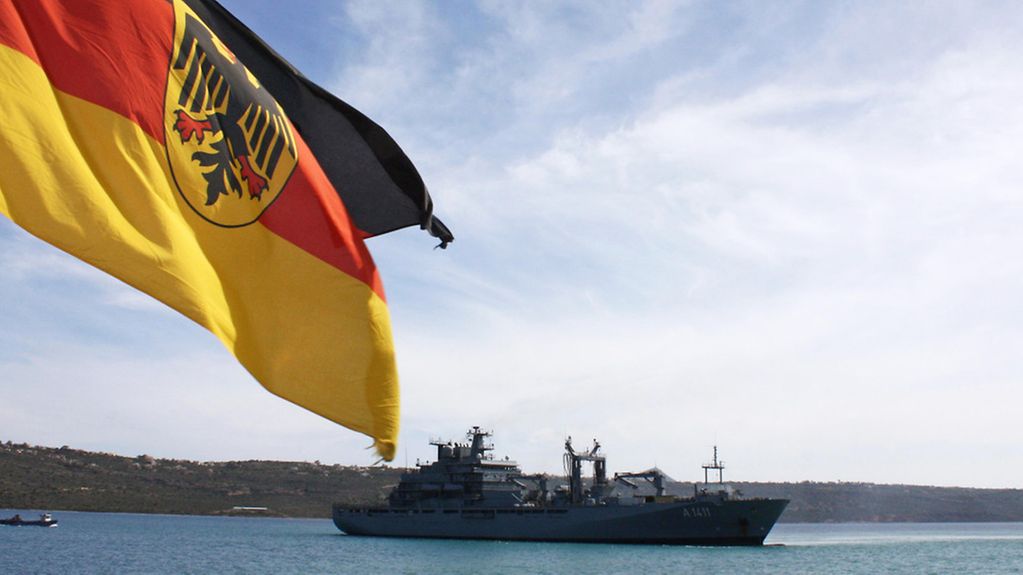EU Operation in the Mediterranean
German troops are to continue to be part of the EU-led Operation SOPHIA, the Cabinet has decided. The mandate is limited until 30 June 2018. The motion must still be approved by the German Bundestag.
2 min reading time

Germany is involved in rescuing refugees in difficulties at sea within the framework of Operation SOPHIA
Photo: Bundeswehr/Jonack
The security situation in Libya remains unstable. There is also a lack of state control over large stretches of the country’s coast, making it the primary transit country for migrants seeking to cross the Mediterranean from North Africa to Europe. In addition, extremist groups including the so-called "Islamic State" constitute a terrorist threat in the region.
The European Union is still engaged in diplomacy in Libya and the region and is providing concrete support so as to help develop a stable, functioning state. The EU is thus supporting the United Nations in its efforts to address the structural causes of displacement and irregular migration flows across the Mediterranean in the countries of origin of migrants and the transit states they use.
The European Union Naval Force Mediterranean (EUNAVFOR MED or Operation SOPHIA) is operating in the entire maritime area south of Sicily off the coasts of Libya and Tunisia in the Central and Southern Mediterranean. To this must be added the airspace above these areas, and adjacent sea areas which are being used to redirect and hand over ships to European ports. The operational area does not include Malta and the 25 nautical miles surrounding it, nor does it cover Libyan territorial waters.
Core mandate still to fight traffickers
Criminal human traffickers are increasingly gearing their business model to the assumption that the various actors involved will rescue migrants in difficulties at sea. Many people are put onto boats that are not seaworthy and are totally inadequately equipped. The traffickers intentionally and calculatingly risk the lives of migrants. The core mandate of the operation is thus still to destroy the business model of traffickers at sea.
In addition, the EU is already supporting the Libyan Coastguard to enable it to undertake sea rescues independently in line with international law and standards, as well as eliminating the business model of the traffickers at as early a stage as possible.
Operation SOPHIA is also enforcing the United Nations arms embargo on Libya at sea, thus helping to stabilise the country.
Cooperation at all levels
In future special attention is to be paid to improving cooperation and information sharing between EU actors and the Libyan authorities, as well as with other actors, including NATO. A great deal of importance is attached to building an operational coastguard.
More than 36,000 people rescued at sea
Operation SOPHIA is continuing to uphold the legal and humanitarian commitment to rescue those in distress at sea. Germany has been involved since the outset of the European Union Naval Force Mediterranean (EUNAVFOR MED) in rescuing refugees and migrants in distress at sea.
By mid-May 2017 more than 36,000 people had been saved by units that are part of Operation SOPHIA.